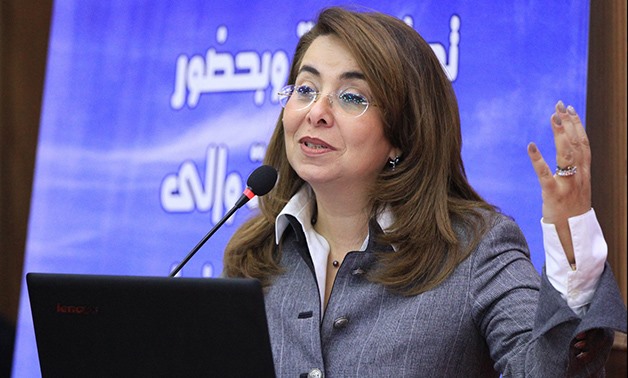
Social Solidarity Ministry, Ghada Wali - Press Photo
CAIRO - 2 June 2018: The Supreme Constitutional Court stripped the Minister of Social Solidarity Ghada Wali from the right of dissolving non-governmental organizations (NGOs) on Saturday, for violating Constitution articles.
The court ruled that Article no. 42 of the NGOs’ law no. 84 for the year 2002 is unconstitutional, for violating the articles no. 2, 10, 47, 50, 64 and 75 of the constitution that states:
“Citizens have the right to form non-governmental organizations and institutions on a democratic basis, which shall acquire legal personality upon notification. They shall be allowed to engage in activities freely. Administrative agencies shall not interfere in the affairs of such organizations, dissolve them, their board of directors, or their board of trustees except by a judicial ruling. The establishment or continuation of non-governmental organizations and institutions whose structure and activities are operated and conducted in secret, or which possess a military or quasi-military character are forbidden, as regulated by law.”
Article no. 42 gives the minister of social of solidarity the right to dissolve NGOs in case they change their activity or receive funds from foreign entities, except by a judicial ruling.
The lawsuit was filed by Chairman of the Board of Directors of the of Ahl el-Kheir Islamic Association for charity.
In May 2017, Sisi ratified a law regulating the work of civil society organizations in the country. The law sees the creation of a new body called the National Authority to Regulate NGOs Operations.
The new NGO Law states that the government authority has to complete the documentation procedure with the new association within a maximum period of 16 days and also mandates that the government must first approve any kind of foreign funding that shall be presented to any Egyptian NGO.
It also allows foreign communities living in Egypt to establish their own bond or association as a foreign NGO, to defend the community’s interests and offer not-for-profit services to the members of the community.
A total of 16 defendants, out of 43 Egyptian and foreign workers, were sentenced in June 2013 to prison sentences between one and five years in the case dubbed in the media as the “
” case. A number of human rights activists have appealed against the sentences at the Court of Cassation.
The ruling had been overturned by Egypt's Court of Cassation in April 2018.
As per the investigations, the sentenced defendants, including 14 Egyptians and 29 Americans, Europeans and Arabs, are charged of receiving $60 million in foreign funds for human rights organizations and NGOs working in Egypt without licenses to "use it for restricted activities and in violation of the state's policy."
Comments
Leave a Comment